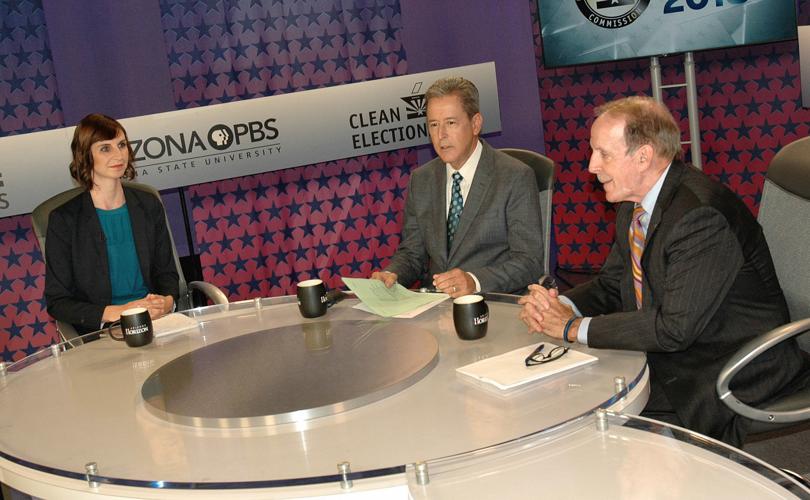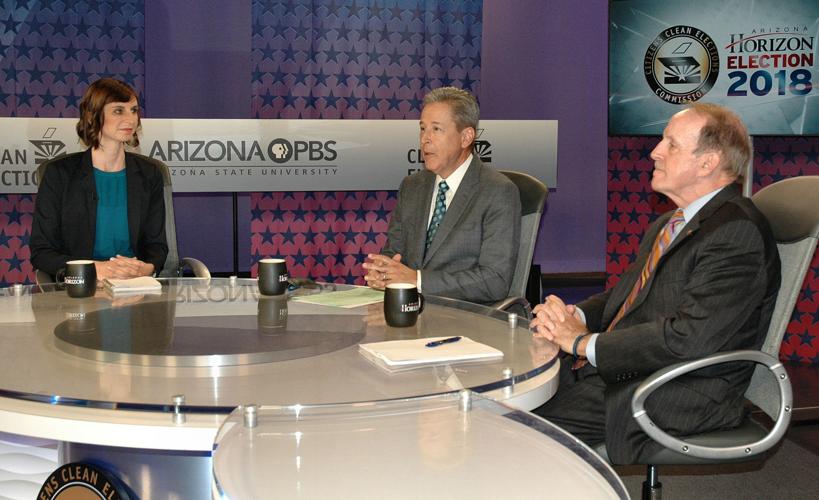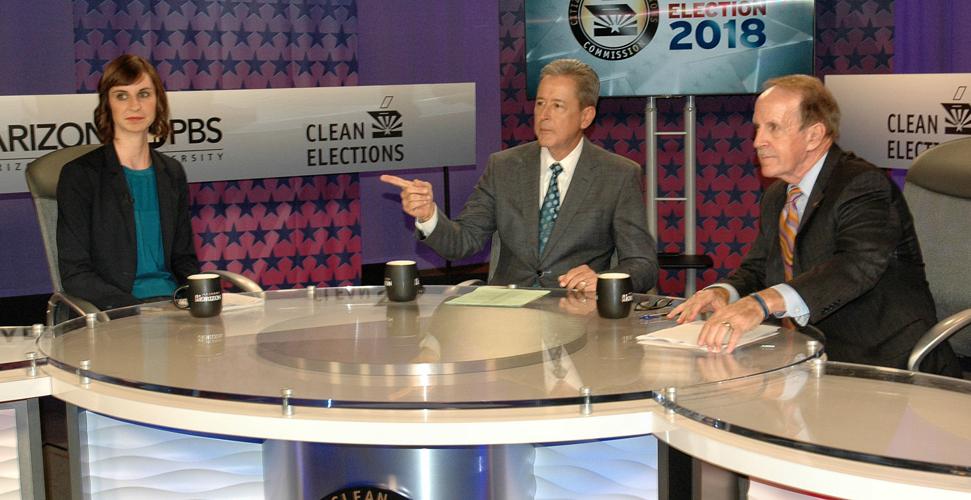PHOENIX — The two contenders for state schools chief found one key agreement in a debate Thursday: Both oppose Proposition 305.
Democrat Kathy Hoffman said there is no reason for the plan approved last year by the Republican-controlled Legislature to make vouchers of taxpayers’ dollars available for all 1.1 million students to attend private or parochial schools, with an initial cap of 30,000 students.
“If we provide the programs and services the kids need in the public schools, then the parents don’t feel like they need to go try to find another program,” Hoffman said during the debate on KAET-TV. She is a former speech therapist with Peoria Unified School District.
Republican Frank Riggs, a former California congressman, said he has no problem with the vouchers, called “empowerment scholarship accounts.” He said there is an argument to be made for greater availability. But not for all.
“Any expansion of ESAs ... should be means tested to give low-income families priority and parity,” Riggs said. The typical voucher is about $5,000 a year. But tuition at most private schools is far more, effectively making vouchers useless except for families who can afford to make up the difference, he said.
Riggs also has another problem with the 2017 law — the one voters will decide through Prop. 305 to ratify or reject — because it adds some testing and accountability for students getting state money to attend these private schools.
“I’ve heard from a lot of parents who have chosen a private, sectarian education for their child, that they believe that could be the camel’s nose under the tent and actually lead to the government, the Arizona Department of Education, beginning to regulate private schools,” including what religious values they can teach, Riggs said.
Hoffman said she’s willing to keep in place the existing vouchers, which now are reserved for students with special needs ranging from learning and physical disabilities to attending public schools rated D or F. But any expansion, she said, even one aimed at students from low-income households, is unacceptable.
“I do not believe in taking taxpayer dollars and putting those towards private schools,” Hoffman said, at least in part because some are run as religious institutions. “I believe in separation of church and state.”
Both said there must be greater state oversight of charter schools, which can be privately owned and run for a profit. Recent news stories have pointed up situations where charter owners pocketed the state dollars they get for students through no-bid contracts with their own companies and by selling off, for a profit, buildings constructed with state dollars.
Hoffman called those reports “highly disturbing” but said she would not call for an end to for-profit charter schools.
Riggs wants charter schools limited to non-profit operations, and reforms including each school having an independent governing board.
The pair both said they supported the teachers’ strike last spring — but with a key difference.
Hoffman said the Red for Ed movement and the strike were necessary to get public attention after a decade of per-student funding failing to keep pace with inflation.
But Riggs said he quickly soured on it, saying the “organic, true grass-roots movement” was “co-opted by very, very partisan political individuals.” He noted that the Arizona Education Association, a part of the movement, endorsed Democrat David Garcia for governor.
Hoffman said it is Riggs who is playing partisan politics. “People from all backgrounds were part of the Red for Ed movement. Education is an issue that crosses party lines because our children do not know the difference between Democrat, Republican,” she said.
She said she supported the Invest in Ed initiative which would have raised $690 million for education through an income tax hike on wealthy Arizonans. The measure was knocked off the ballot by the Arizona Supreme Court.
Riggs called the proposed tax increase “counterproductive,” saying it would have led to cuts in job production and tax revenues.






